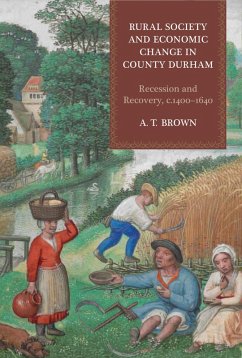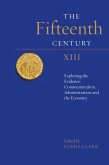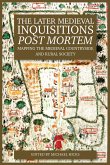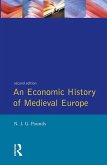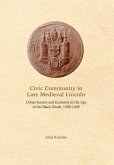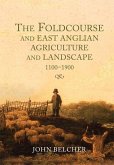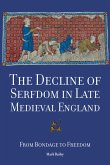A regional study of landed society in the transition between the late medieval and early modern period.
In the middle of the fifteenth century, the economy of north-east England was beset by crises: population was low, production was stagnant and many landowners faced penury. By the end of the sixteenth century, however, the precocious development of the coal industry and high levels of inflation provided opportunities for investment and profit in the Durham countryside.
This book examines the development of agrarian capitalism; estate management; tenure and the land market; social mobility; the gentrification of merchant wealth and the emergence of the yeomanry during this period in the region. It looks at such questions as how the coal industry was affected by the fifteenth-century recession and the effects its rapid expansion had upon landed society; reassesses debates on the rise of the gentry and the "crisis" of the aristocracy; and considers how the wholesale economic changes of this period affected the social structure of late-medieval and early-modern England. Although this period is often seen as a transitional era, this book argues that it needs to be studied as one long agrarian cycle, showing the degree to which patterns of landholding fixed during the fifteenth-century recession affected the distribution of profits between different types of lords and tenants in the sixteenth and early seventeenth century.
A.T. Brown is an AddisonWheeler Fellow at Durham University.
In the middle of the fifteenth century, the economy of north-east England was beset by crises: population was low, production was stagnant and many landowners faced penury. By the end of the sixteenth century, however, the precocious development of the coal industry and high levels of inflation provided opportunities for investment and profit in the Durham countryside.
This book examines the development of agrarian capitalism; estate management; tenure and the land market; social mobility; the gentrification of merchant wealth and the emergence of the yeomanry during this period in the region. It looks at such questions as how the coal industry was affected by the fifteenth-century recession and the effects its rapid expansion had upon landed society; reassesses debates on the rise of the gentry and the "crisis" of the aristocracy; and considers how the wholesale economic changes of this period affected the social structure of late-medieval and early-modern England. Although this period is often seen as a transitional era, this book argues that it needs to be studied as one long agrarian cycle, showing the degree to which patterns of landholding fixed during the fifteenth-century recession affected the distribution of profits between different types of lords and tenants in the sixteenth and early seventeenth century.
A.T. Brown is an AddisonWheeler Fellow at Durham University.
Dieser Download kann aus rechtlichen Gründen nur mit Rechnungsadresse in A, D ausgeliefert werden.

